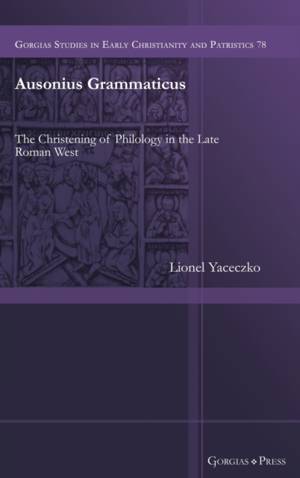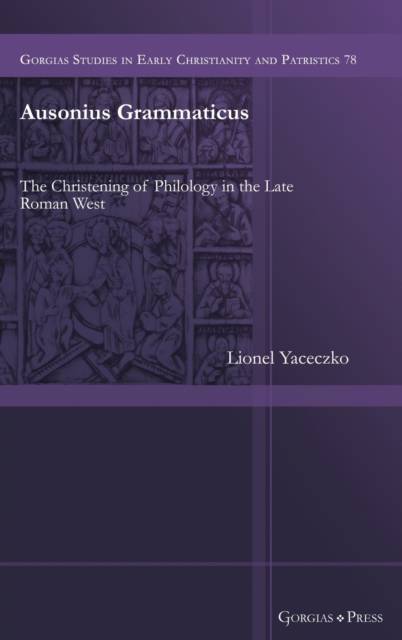
- Afhalen na 1 uur in een winkel met voorraad
- Gratis thuislevering in België vanaf € 30
- Ruim aanbod met 7 miljoen producten
- Afhalen na 1 uur in een winkel met voorraad
- Gratis thuislevering in België vanaf € 30
- Ruim aanbod met 7 miljoen producten
Omschrijving
The present volume describes the rich and complex world in which Ausonius (c. 310-395) lived and worked, from his humble beginnings as a schoolteacher in Bordeaux, to the heights of his influence as quaestor to the Emperor Gratian, at a time of unsettling social and religious change. As a teacher and poet Ausonius adhered to the traditions of classical paideia, standing in contrast to the Fathers of the Church, e.g., Jerome, Augustine, and Paulinus of Nola, who were emboldened by the legalization, then the imposition, of Christianity in the course of the fourth century. For this position he was labeled by the 20th-century scholar Henri-Irénée Marrou a symbol of decadence. Guided by Marrou's critical insights to both his own time and place and that of Ausonius, this book proposes a hermeneutic for reading Ausonius as both a fourth-century poet and a fascinating mirror for his 20th-century counterparts.
Specificaties
Betrokkenen
- Auteur(s):
- Uitgeverij:
Inhoud
- Aantal bladzijden:
- 254
- Taal:
- Engels
- Reeks:
- Reeksnummer:
- nr. 78
Eigenschappen
- Productcode (EAN):
- 9781463242800
- Verschijningsdatum:
- 27/07/2021
- Uitvoering:
- Hardcover
- Formaat:
- Genaaid
- Afmetingen:
- 152 mm x 229 mm
- Gewicht:
- 508 g

Alleen bij Standaard Boekhandel
Beoordelingen
We publiceren alleen reviews die voldoen aan de voorwaarden voor reviews. Bekijk onze voorwaarden voor reviews.











